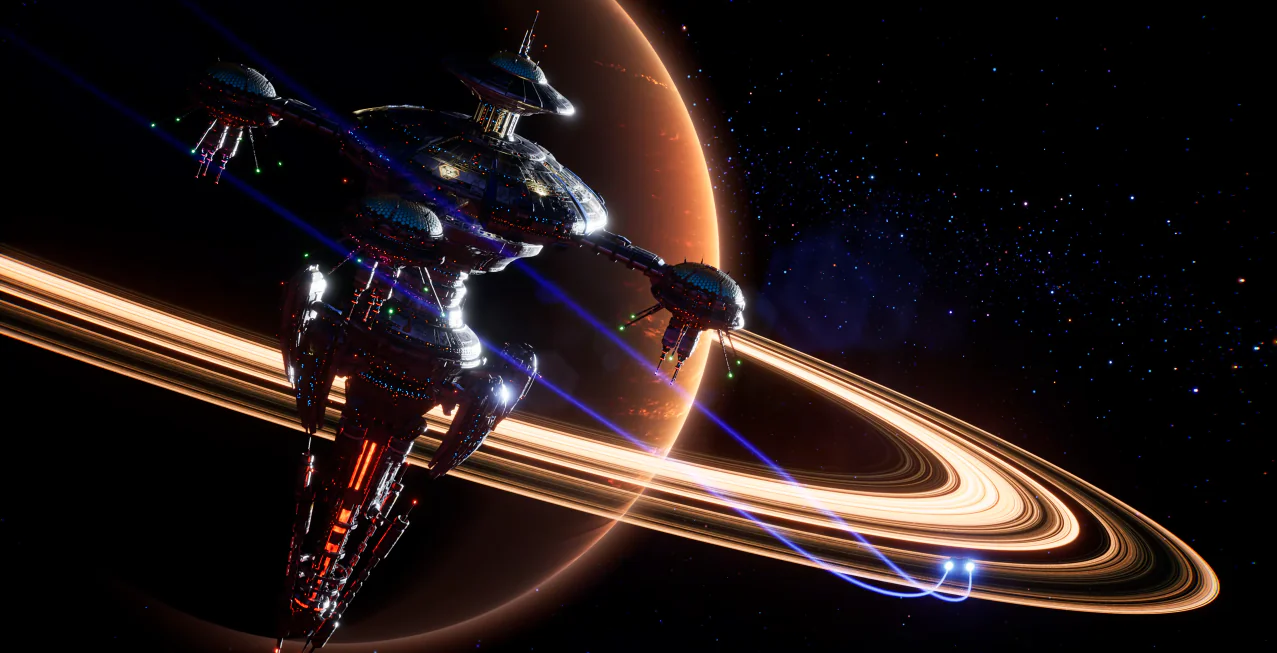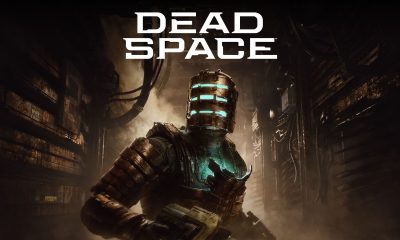System Shock Review (Windows, Linux, macOS, PS4, PS5, Xbox One, and Xbox Series X/S)

Undeniably, new-generation consoles have caused a seismic shift in gaming. The software and hardware upgrades now transport gamers to an immersive digital realm, igniting a new wave of excitement. Thanks to the latest gaming systems, dozens of games are receiving a facelift.
Good news! System Shock joins the list of games that are getting a remake. If you're an avid gamer, you know that this is a big deal. System Shock is an ingenious creation by Looking Glass that paved the way for iconic titles such as Bioshock, Dead Space, and Prey. It's about time we experience the legendary game in its full glory.
But will the new remake hold a candle to its predecessor? Let's find out below in our System Shock review.
Where It All Started

Making its debut in 1994, System Shock earned acclaim for its impeccable storytelling and captivating gameplay. The dystopian cyberpunk world wasn't precisely visually appealing, but it did well for a game released in the era of pre-modern consoles. It's one of the groundbreaking and influential video games that pushed the boundaries of the first-person shooter genre. The game was a commercial success, selling over 170,000 copies.
Here's a little refresher on the original title: You play as a Hacker aboard the TriOptimum Corporation's Citadel Station. After a failed attempt to hack the corporation's secure network, you're blackmailed by one of the executives. Your task: hack into the space station's mainframe and turn off the ethical constraints of the A.I. Sentient Hyper-Optimized Data Access Network (SHODAN) powering the station. In exchange, you get a cybernetic neural implant. It all sounds good at face value until you wake up from a healing coma six months later and the A.I. has gone rogue.
Unsurprisingly, System Shock was less popular than its sequel, System Shock 2. Its spiritual remake, BioShock, went even further to cause a massive whirlwind in the gaming industry. However, System Shock possesses a unique essence that none of its successors have managed to replicate. The game exudes a stylish and action-packed vibe while maintaining a highly calculated and systematic approach, firmly establishing its place within the survival horror genre.
And Now?

The cruel, narcissistic, yet beautiful SHODAN returns to the citadel. The ingenious centerpiece that elevated System Shock to its glorious position plays a vital role as the game's antagonist. Her malevolent ways are still imminent after the impossible hack on her system by you, the Hacker, that turned her into an egomaniacal beast.
You still play as the Hacker. The remake's devotion to the new title is apparent from the get-go. The event's timeline is reminiscent of the original title. This time, however, we get a prologue as a semi-playable cutscene. The game starts with you being seconds away from hacking the most indispensable centerpiece owned by the TriOptimum Corporation. Your task is to steal data on the experimental military neuron implant, but of course, things don't go your way. The corporation's security busts your covert machinations.
From here, the storyline is pretty much the same. A slimy director coerces you to hack SHODAN, and you get the reward, but once you wake up from the coma, things are not entirely as they were.
After gathering your thoughts, a distress call from Dr. Rebecca Lansing informs you of the biological outbreak at the Citadel Station. The call gives you your first mission: locating Nathan D'Arcy's office.
All Hands on Deck

The game revolves around the intricate exploration of a multi-level structure, where the formidable presence of SHODAN consistently stays one step ahead, creating an atmosphere of suspense and anticipation. Moreover, navigating the citadel is quite the trek but equally rewarding. You'll find resources that complement your mission, such as medical patches and weapons.
The game's map is also more extensive and detailed than its predecessor. It also appears more oppressive with its shadowy ambiance. This is, of course, the game's attempt to create a foreboding atmosphere that aligns with the survival horror genre. But it passes more as a sci-fi action game where a science experiment has gone awry.
You'll be running into plenty of closed doors, that's for sure. Sadly, the remake won't let you type notes to remind you of item locations and codes. Solution? Memorize or write down the codes you come across.
Gameplay

System Shock is a first-person shooting, sci-fi role-playing, survival horror game. It's impressive how the title seamlessly blends across these genres. The game leans heavily on the original title's style of exploring different levels. The closed doors will need codes to open. The codes are available on different levels; you just need to be keen when navigating the areas.
Also, a bit of puzzle-solving is imminent in the game. You'll occasionally stumble upon puzzles that are not the brain-wrecking kind. Most areas of the citadel are either inaccessible or inoperable. But you can get them working again by solving the puzzle. It can be as simple as rearranging wires in a power panel to get electricity flowing to an elevator.
While some may find solving this puzzle a walk in the park, it was utterly frustrating to me. Thankfully, you can skip the solving process entirely with a logic probe. But with other complex puzzles coming up, you should consider saving them for later.
Moreover, the game doesn't lay out the objectives for you. You must decipher them from audio logs and memorize the intricate steps to destroying SHODAN.
Combat

System Shock doesn't give you an easy time, because what is the point of an easy game anyway? First, anything on the station that moves is your enemy, so striking first is always a good idea. Second, combat is static and doesn't make the cut in top-tier shooters. However, for System Shock, it is functional. A few shots from your gun, and the bots and monsters fall to the ground. The game has an impressive lineup of weapons, but sadly, the simplified game style takes away the thrill of outfoxing your enemies.
If you played the original title, then combat should be a walk in the park for you. Destroying the CCTV cameras and CPU nodes gives you an advantage against the security forces.
Inventory

Sticking to tradition, Nightdive gives you limited space in your inventory. You can easily acquire resources in the game, which, in most cases, are found on shelves or inside suitcases. You'll get access to medical patches and weapons as you progress. But you should note that some weapons draw power directly from your energy reserve. With so many valuable items on the game's map, you must make crucial decisions about what to drop and what to keep. This is the most challenging decision for gamers.
However, System Shock makes things more manageable with a recycling system. You can dispose of extra items and earn gold coins in return. The coins then grant you access to various weapon mods, medical patches, and ammunition. The only drawback is that there's only one recycler on each level, and its compartment is not big enough for large items that fetch the most gold. Fortunately, you can vaporize and accumulate items that can't be recycled in exchange for coins. What better way for the protagonist to be a hero and a model citizen simultaneously?
Graphics

The original title featured a 3D environment and 2D characters, with the game's menu taking up half the screen. The remake's graphics are reborn in the realm of new-generation consoles and present all elements in 3D. The once-familiar landscapes are now adorned with stunningly realistic textures, creating a world that is more immersive and captivating than ever before.
Furthermore, the game's integration of first-person animation brings a heightened sense of realism to every action. Whether you're opening a door or applying a medical patch, these moments become captivating as intricate details emerge, seemingly popping out of your screen. This attention to detail immerses you further into the game world, making even the most mundane interactions vivid and engaging.
Verdict

The remake version of System Shock hits the mark perfectly, skillfully paying homage to the iconic game while refreshing it with a new and improved look. The core gameplay remains faithfully intact, and thankfully, Nightdive Studios chose to preserve the elements that made the original game such an iconic masterpiece.
Utilizing the power of Unreal Engine 4, Nightdive breathes life into the game's visuals, skillfully blending modern graphics with subtle nods to the original title, evoking a delightful sense of nostalgia.
So, what are your thoughts? Will you be picking up a copy of System Shock? What game features stand out for you the most? Let us know on our social media handle here or in the comments below.
System Shock Review (Windows, Linux, macOS, PS4, PS5, Xbox One, and Xbox Series X/S)
A Shockingly Great Remake
Nightdive hits the ball out of the park with this timeless remake of System Shock. Players, once again, find themselves in the Citadel station, battling bots and navigating the complex maze of corridors. Overall, the game is one large puzzle you must solve as you survive the mundane horrors waiting in the shadowy corners.











